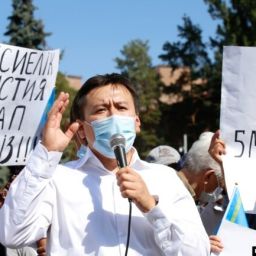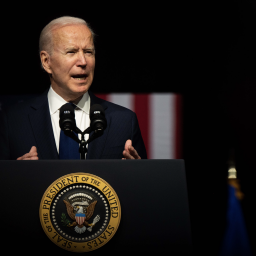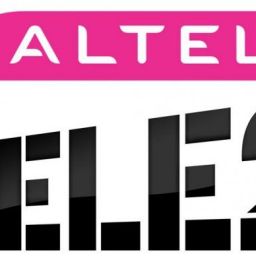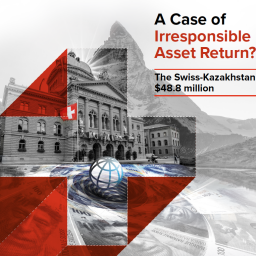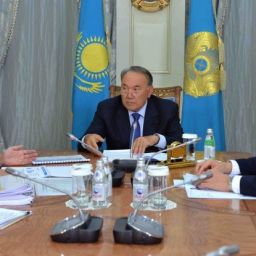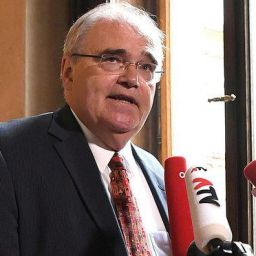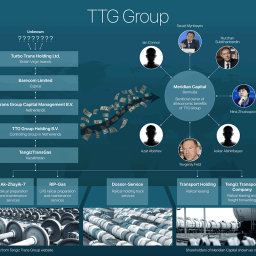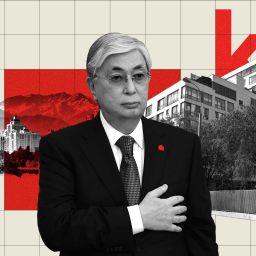WASHINGTON — Early in 2018, when Ukrainian media reported that Prosecutor-General Yuriy Lutsenko had been denied entry into the United States, the nation’s top lawman rushed to deny the story.

And with good reason.
“That would have been the end of his political career,” Daria Kaleniuk, the executive director of the Kyiv-based Anti-Corruption Action Center, told RFE/RL.
Lutsenko would go on to serve another 16 months and play a key role in the events that would lead to the first impeachment trial of then U.S. President Donald Trump, in 2020.
To this day it is not publicly known whether Lutsenko, who had a tense relationship with the U.S. Embassy in Kyiv over questions about his commitment to fighting corruption, was in fact barred from entering the United States: U.S. law prevents the State Department from disclosing such information in most cases.
Now, a bipartisan group of U.S. lawmakers wants to change that. The legislators are backing a bill that would give the State Department the right to disclose the names of tycoons, officials, and other individuals whom it bans because allowing them entry could have “serious adverse foreign policy consequences” — often linked to alleged corruption, human rights abuses, and transnational aggression.
The REVEAL Act, as the legislation is known, would override a section in the Immigration and Nationality Act (INA) that prevents public disclosure of those banned for foreign policy reasons.
Advocates say the bill, if adopted, would be the U.S. government’s newest tool to battle corruption and human rights abuses amid growing concern in Washington over the rollback of democracy, fundamental freedoms, and the rule of law in many parts of the world including Russia and several other former Soviet republics.
“Kleptocrats rely on anonymity. When we bring their crimes to light, we curb their power. The United States should not allow crooks and cronies to hide behind confidentiality,” Senator Ben Cardin, a Democrat from Maryland and a co-sponsor of the REVEAL Act, said in a statement on July 20, the day it was introduced to Congress.
‘Huge Step’
Serik Medetbekov, a representative of the Civil Society Coalition of Kazakhstan, an umbrella organization that unites various democracy and rights groups in the Central Asian nation, told RFE/RL that passage of the bill would be “an important sign” from the West to foreign activists like himself.

“When you publicly ban someone, it is a huge step for the whole anti-corruption fight,” said Medetbekov, who is lobbying Congress for sanctions against 22 Kazakh nationals.
Kaleniuk said it would also send a “powerful signal” to current officials that they “could be next” on the visa ban list if they, too, engage in corruption or human rights abuses.
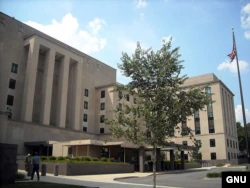
There is no public information on the number of people who are banned under the section of the INA pertaining to “serious adverse foreign policy consequences” though it could easily be in the hundreds, including many tycoons and officials from the former Soviet Union.
The names of some who might be barred under that section of the INA can be gleaned from Treasury Department sanctions lists, State Department documents published under the Freedom of Information Act (FOIA), and U.S. lobby filings.
The Treasury Department must publicize the names of people it sanctions so that U.S. individuals and businesses know not to transact with them. Inclusion on a sanctions list does not mean that the individual is barred from the United States, but the likelihood is high because visa bans are a common element of such measures.
State Department officials sometimes express views of the character of foreign magnates and officials in their correspondences, which can be obtained through public information requests. These views — such as referring to someone as “corrupt” — may suggest that the person in question is barred from the United States, but there is no direct correlation.
Foreign tycoons banned from the United States sometimes hire lobbying firms to help them overturn their inadmissibility or receive a waiver.
Kazakh billionaire Aleksandr Mashkevich, a suspect in a long-running bribery probe in Britain, in February hired Washington-based Sonoran Policy Group to lobby the U.S. government on issues “related to business and travel” though there is no evidence to suggest he is banned.SEE ALSO:Too Big For Sanctions? Why The U.S. Didn’t Hit Ukrainian Tycoon Kolomoyskiy With Economic Penalties
Ukrainian billionaire Ihor Kolomoyskiy, who had long been rumored to be banned entry to the United States, hired a firm in 2017 for $80,000 to lobby the State Department for the “issuance of a U.S. E-2 Investor Visa.”
In a surprise move this March, the State Department publicly barred Kolomoyskiy and his immediate family from entering the United States for involvement in corruption in 2014-2015 while serving as a regional governor.
It did so using section 7031(c) of the Department of State, Foreign Operations, and Related Programs Appropriations Act, which not only mandates the State Department to ban an individual and his immediate family from entry when there is credible evidence of their involvement in corruption or human rights abuses, but also gives it the right to release their names to the public.
U.S. And Beyond?
Since first utilizing the power of 7031(c) to shame former Albanian Prosecutor-General Adriatik Llalla in 2018, the State Department has since publicly named more than 160 people who are banned from entering the United States under that provision, including officials’ immediate family members.
However, its use to ban an individual is limited compared with the INA because it requires greater proof of their involvement in corruption or human rights abuses.
That can often be hard to obtain, as foreign governments may not be willing to cooperate and share material with the United States.
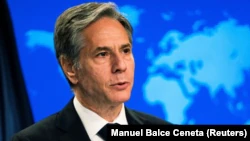
The INA section is “much faster, much more flexible, and it doesn’t require that credible evidence standard,” Paul Massaro, a senior policy adviser to the Commission on Security and Cooperation in Europe (CSCE), told RFE/RL.
The CSCE, also known as the U.S. Helsinki Commission, is an independent commission of the U.S. government that promotes human rights and democracy in Europe and Central Asia. Three of its leading members — Cardin, Representative Steve Cohen (Democrat-Tennessee), and Senator Marco Rubio (Republican-Florida) — introduced the REVEAL Act.
The State Department used the INA to ban 76 Saudi nationals in February “believed” to have been involved in threatening dissidents overseas, including but not limited to the killing of journalist Jamal Khashoggi.
Secretary of State Antony Blinken said the State Department would also review the Saudi nationals for designation under Section 7031(c) with the possibility of publicly naming them.
Should the REVEAL Act be passed, Blinken would have the authority to name them without the need for obtaining credible evidence.
Other nations “could follow” the U.S. lead, expanding the impact of the bill, said Representative Steve Chabot, a Republican congressman from Ohio who is another co-sponsor of the REVEAL Act.
In order to become law, the bill must be passed by both chambers of Congress and signed by President Joe Biden.
Biden administration officials have said little about the legislation, but Massaro said that it has strong bipartisan support and that he expects it to become law.
If the REVEAL Act is adopted, the administration would still be able to keep confidential the names of some individuals banned over concerns of “serious adverse foreign policy consequences” if it is believed to be in the U.S. national interest.
Todd Prince is a senior correspondent for RFE/RL based in Washington, D.C. He lived in Russia from 1999 to 2016, working as a reporter for Bloomberg News and an investment adviser for Merrill Lynch. He has traveled extensively around Russia, Ukraine, and Central Asia.
